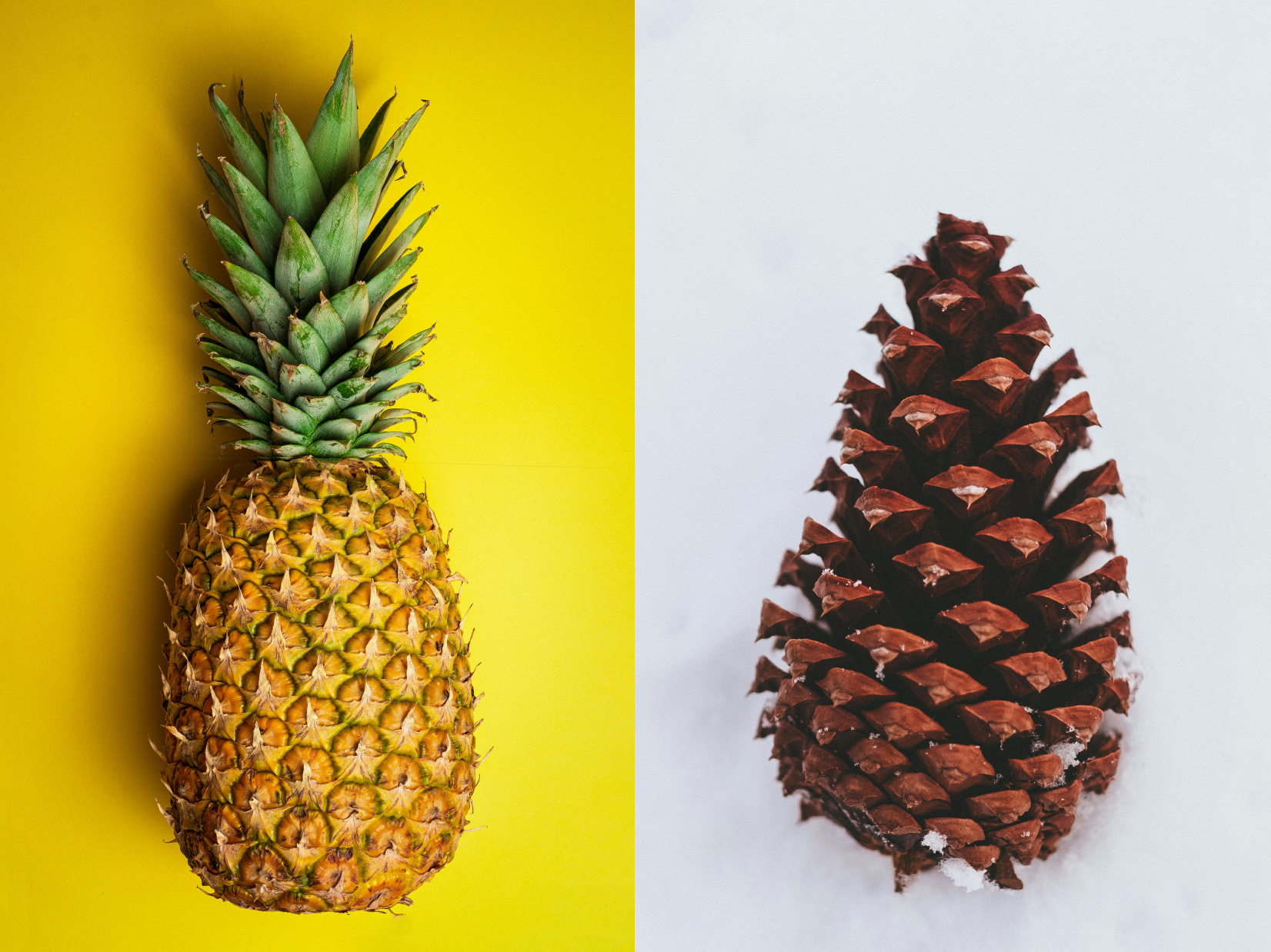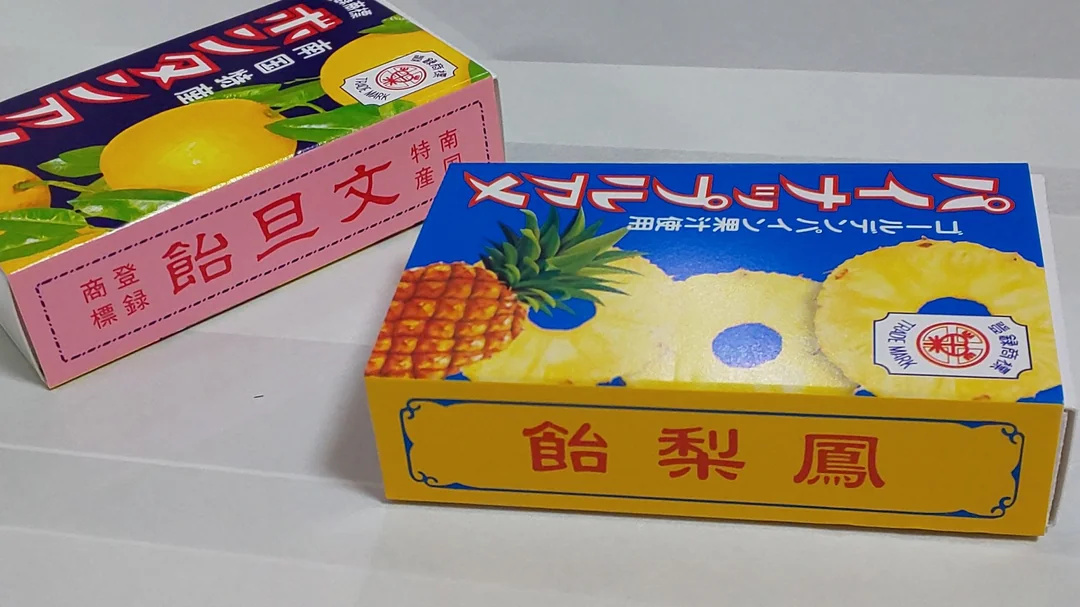Sometime, someday I heard that there are ~40 languages in the world that use the word ananas or its derivatives, except English because English is funny as always.
It is ananas in my native language - Ukrainian, and this made me wonder if that's the case for Japanese too. Never encountered the word before (look at me, an amateur), so I looked it up. It's パイナップル ok, then, so there are ~40 languages that use ananas and Japanese is not one of them, nice and easy
Except two weeks later, I realized. Oh... アナナス is also kinda used in Japan. And then I got dragged into the whole ananas rabbit hole.
A little not little bit of history
It's worth mentioning that a lot of these languages have the word ananas, but it's not the most common word for it, for example in Spanish there is ananas, but actually the common way to say it is piña. Also, English is kind of weird for using pineapple, but it's not the only one doing so, it's kind of framed badly, I guess.
We'll get to how this relates to Japan in a sec, but first, the history behind this boils down to influence:
The Spanish
Basically, the story goes, Columbus found America, welcome to somewhere in the Bahamas, probably. The Kalinago native people gave him ananas, which was the first fruit brought from America to Europe. They didn't know that tho, idiots were totally convinced they found India, and called it Piña de Indes aka Indian pinecone. And that's why the drink is called Piña colada too by the way. Which I mean. Does this look like a pinecone to you?

And then the Portuguese
So sometime after that, the Portuguese decided they were going on a trip to India. Well, it's obvious how that went.

The fate that awaited them in Brazil was ... also ananas, but this time they called it the same, sorta, it was nanas in native Tupi people's language but sure. And so the Portuguese did a lot of trade, and eventually spread it everywhere around the world.
And then the English got involved
In English we ended up with pineapple because originally the word for what we call pinecone today was the "pineapple" in question, so the fish and chips enjoyers kind of followed the same logic as the Spanish and named it pineapple which means pinecone. Except later they renamed pineapple (the pinecone) to pinecone so a pineapple is not a pinecone, but a pinecone is a pinecone, and that's how we ended up here, it is totally not confusing at all no, wdym.

And as you'd expect from reading パイナップル, that's where the word came from into Japanese.
So what was Japan doing in all that?
It was doing its usual borrowing thing.
Japanese loanwords
You see, in Japanese, there are more or less two types of loanwords:
- 外来語 - modern foreign words that are borrowed from mostly English, Portuguese, Dutch and modern Chinese.
These are your run-of-the-mill: コンビニ (convenience store) and パソコン (PC). - 漢語 - foreign words borrowed from old chinese.
These are your 全部 (all), 人間 (human) and 時間 (time/hour) etc. They are more established parts of the language and kind of feel like native Japanese at this point. Note: 外来語 can also refer to any foreign-origin word, but especially to Western newer ones.
外来語 words are usually written in katakana, but there also exist 当て字 - ateji kanji like 寿司 which don't use the meanings of the kanji but rather the pronunciations. 瓦斯 meaning gas for example uses something along the lines of 瓦 - "roof tiles" and 斯 - "this", which is nonsense. Ateji forms are, however, rare in modern Japanese, and the aforementioned is usually written in kana as ガス.
So what's up with the ananas?
All the words for pineapple in Japanese:
- パイナップル/パインアップル: refers to the fruit
- アナナス: rarer, usually refers to the plant itself or less commonly the fruit
- 鳳梨: old, refers to both
The old now rarely used form is 鳳梨 which as mentioned before came from China, and is still used in Chinese languages.

But after WW2 as 外来語 were becoming more common, the word eventually got replaced by パイナップル.
And the weirdest thing is アナナス. It seems to be just a rarer form that came from Portuguese instead of English, but it's also mainly used for the plant itself. It's mostly referred to like that in gardening, definitely not in everyday common speech though.
Japan being weird again
I couldn't find any other example of a language having both of the common words for pineapple and each of those two referring to the fruit and the plant separately, which makes this kind of wonky and unique, and being wonky and unique is a common thing in Japanese.
In my head アナナス could've come to be the plant because of the scientific classification being Ananas and then there was this underused word that came from Portuguese, so sure, here comes this unique thing. It's hard to tell though.
So next time someone calls it a pineapple, remember, it could've been a cactusapple.

